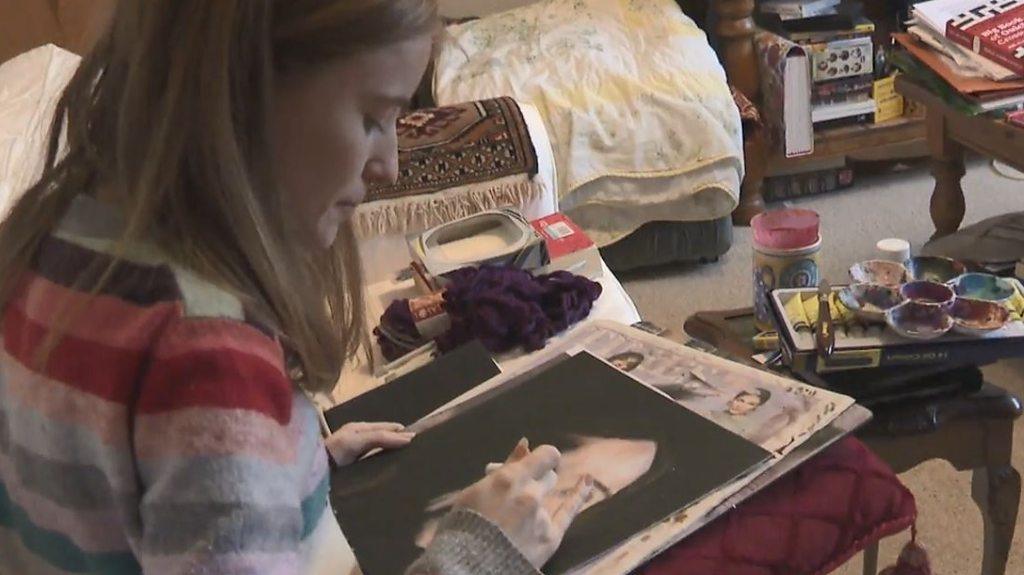ME services: Protesters call for better support
- Published
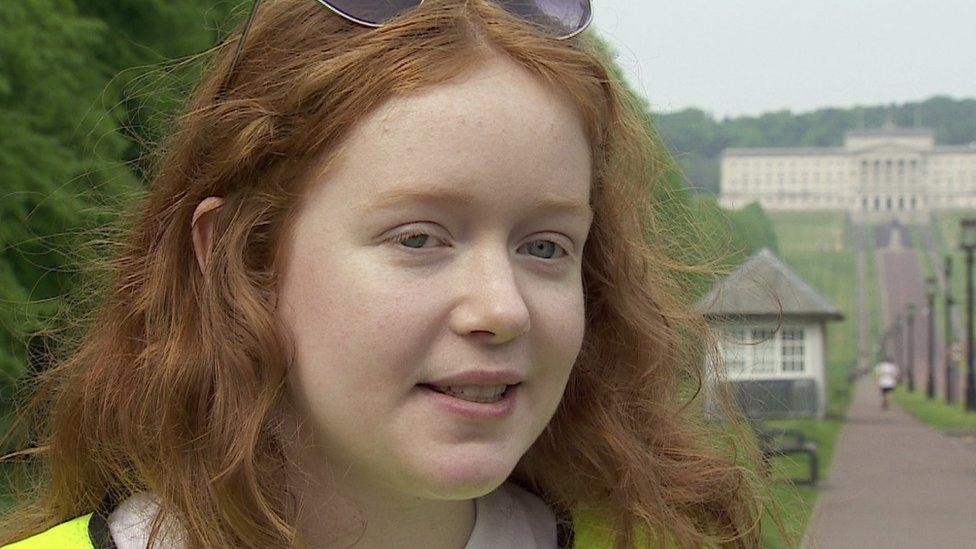
Rosie Pidgeon was diagnosed with ME after contracting Covid-19 in 2021
A former champion Irish dancer who has myalgic encephalomyelitis (ME) has joined other protesters calling for better support for those with the condition.
Rosie Pidgeon developed the neurological condition after contracting Covid in 2021.
The 19-year-old now uses a wheelchair to manage fatigue and pain.
She joined a crowd of others with ME to urge Stormont to introduce specialist services in Northern Ireland.
The protest on Sunday was held to coincide with World ME Day.
ME, also known as chronic fatigue syndrome, is a long-term condition with symptoms including extreme tiredness, nausea and pain.
It can be triggered by viral infections.
'It's a big change'
"I used to be a championship-level Irish dancer," Ms Pidgeon told BBC News NI.
"I've competed at the Northern Ireland Championships and the Ulster Championships, and would compete at competitions regularly. I had a pretty active life."
But she said she now had "lots of different struggles" such as fatigues and headaches as a result of her condition.
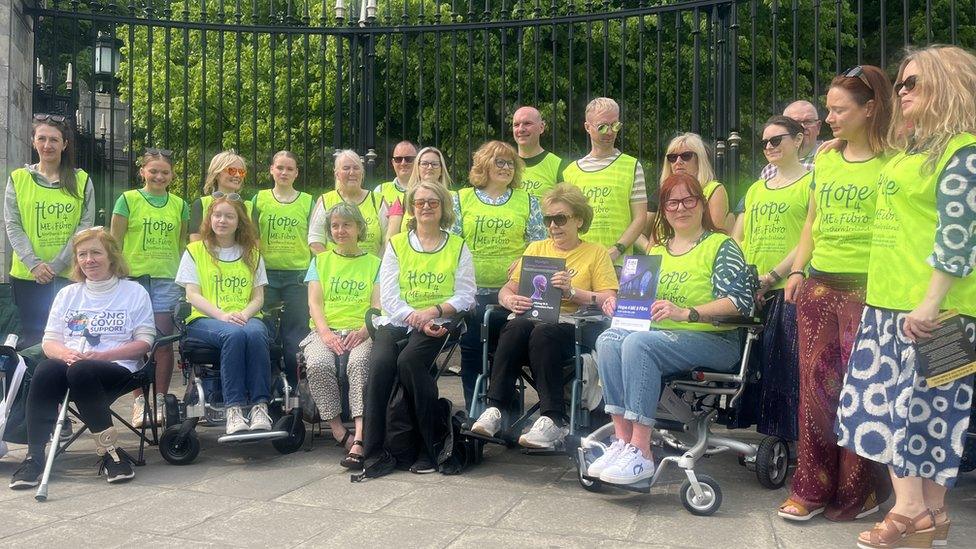
Myalgic Encephalomyelitis (ME) protesters held a rally at Stormont on Sunday
"Initially my infection wasn't too bad, and it was after that that all these symptoms started developing," she said.
"It was a big change from what I could do and what I could manage to do, and how I feel on a daily basis, to how I used to be."
'This isn't how I should be at my age'
Ms Pidgeon experiences brain fog, but she is hoping to study art at university.
"It's a big struggle, especially being young," she added.
"For my 18th birthday, I got together with some friends and was in bed for a week after that, which is not how you should be at a young age, so it's definitely tough."
She said it was important to raise awareness about ME and called on Stormont for more help - such as treatment and clinical trials.
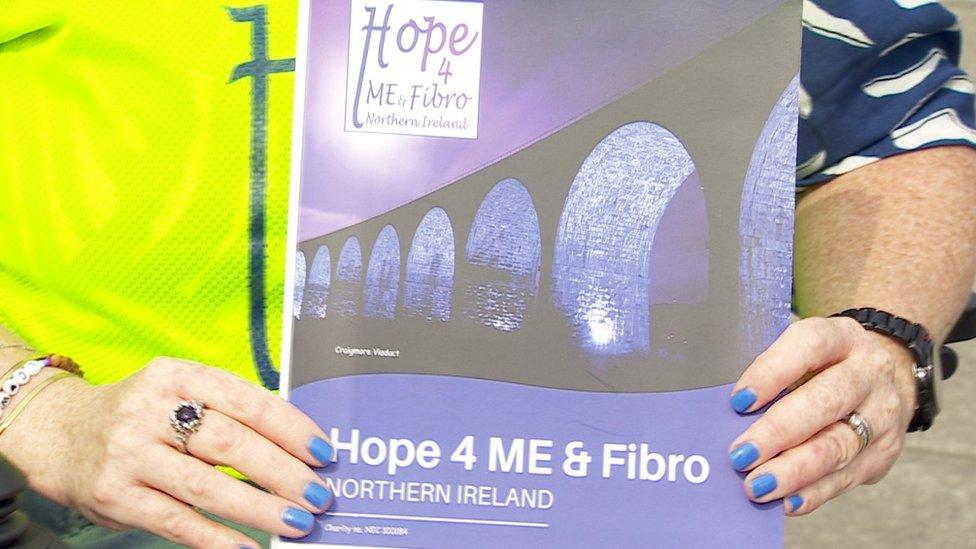
The group of protesters have said there needs to be more awareness of the condition
The protesters said guidance for healthcare professionals regarding ME patients was outdated.
They also called for greater education of medical students to ensure they had a better understanding of the condition.
'Pot luck' for diagnosis
Joan McParland, founder of the support group Hope 4 ME and Fibro NI, has had ME for 25 years.
She said it was "pot luck" as to whether people suffering from ME would meet a medical professional who actually believed the condition existed.
"Just like the general population - they think it's tiredness, or depression or anxiety...those are things during the past 25 years I have never suffered from," she said.
"I have not felt depression, but I have felt frustration and even anger at the way we're just left to lie in our bed for eternity nearly.
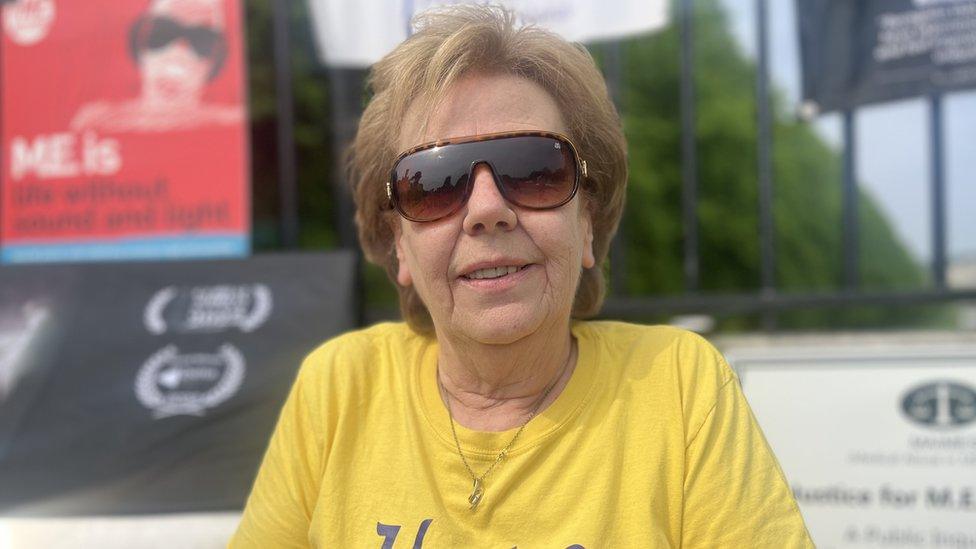
Joan McParland started an ME support group for others with the condition
She said early and accurate diagnosis was vital to help people, particularly in the early stages of post-viral illness.
"With the proper advice, education and self-management gives them the best opportunity to maybe get out of this disease," she said.
Mother-of-two Rebecca Logan also attended the protest.
The 43-year-old former nurse suffers from long Covid after contracting the virus while working on the frontline.
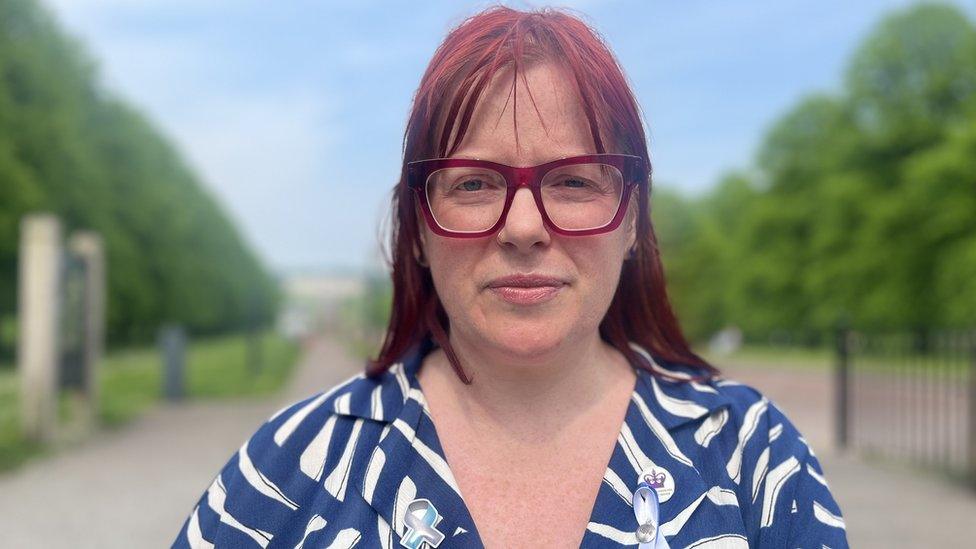
Rebecca Logan worked as a nurse before she developed long Covid
She said there was an overlap in the type of symptoms experienced by those with ME and long Covid.
She said had specialist ME services already been in place, there might be better support for people living with long Covid.
"I think had ME been taken more seriously in Northern Ireland before the pandemic, then long Covid sufferers would have had a basis or a guidance of the services that should have been in place for ME patients, which then could have guided how long Covid was treated because the parallels between the two conditions are so similar," she said.
Related topics
- Published20 February 2024
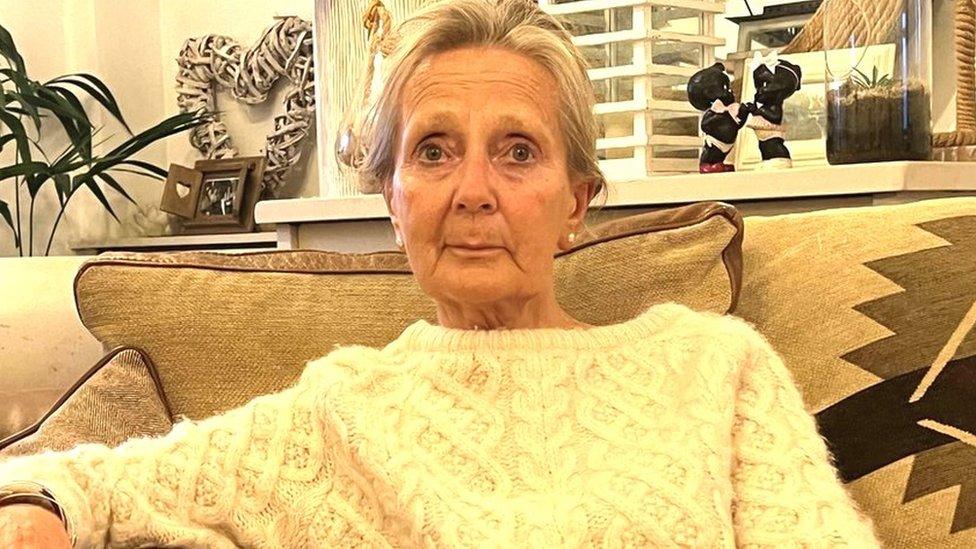
- Published10 March 2022

- Published16 February 2020
